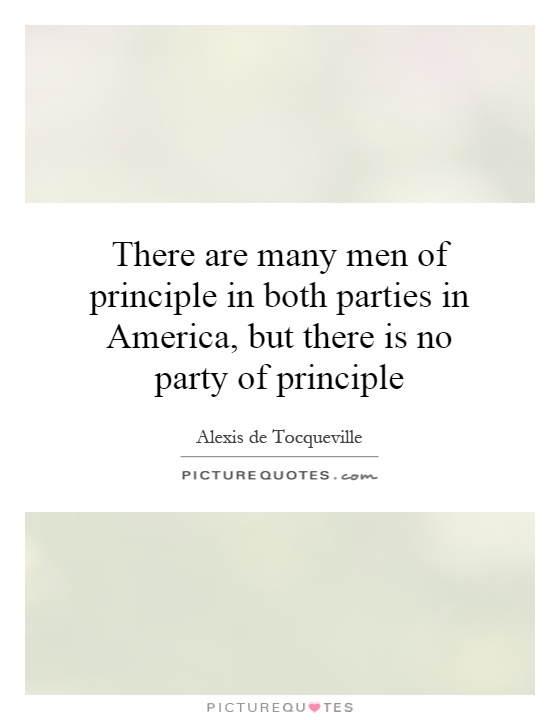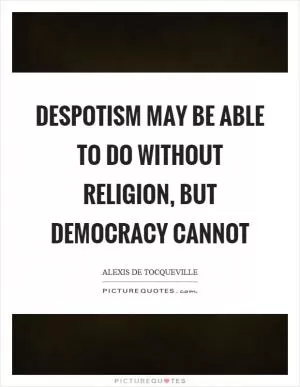There are many men of principle in both parties in America, but there is no party of principle

There are many men of principle in both parties in America, but there is no party of principle
Alexis de Tocqueville, a French political thinker and historian, famously observed in his seminal work "Democracy in America" that while there are many men of principle in both political parties in America, there is no party of principle. This statement continues to hold true in contemporary American politics, as the two major parties, the Democrats and Republicans, often prioritize winning elections and advancing their own agendas over adhering to a consistent set of principles.Tocqueville's observation highlights the inherent tension between individual principles and party loyalty in a democratic society. While there are certainly politicians in both parties who hold strong beliefs and values, they are often forced to compromise or abandon those principles in order to maintain party unity and secure electoral victories. This can lead to a lack of ideological coherence within parties, as politicians may shift their positions on issues based on political expediency rather than a commitment to a set of core principles.
Furthermore, the competitive nature of American politics incentivizes parties to prioritize winning elections over upholding principles. This can result in a focus on short-term gains and tactical maneuvering, rather than long-term vision and ideological consistency. In this environment, politicians may be more concerned with appealing to swing voters and special interest groups than staying true to their principles.
Tocqueville's observation also speaks to the broader challenges of partisanship and polarization in American politics. As the country becomes increasingly divided along partisan lines, the pressure to toe the party line and demonize the opposition can make it difficult for politicians to engage in principled debate and compromise. This can further erode the possibility of a party of principle emerging, as ideological purity becomes secondary to winning at all costs.












 Friendship Quotes
Friendship Quotes Love Quotes
Love Quotes Life Quotes
Life Quotes Funny Quotes
Funny Quotes Motivational Quotes
Motivational Quotes Inspirational Quotes
Inspirational Quotes